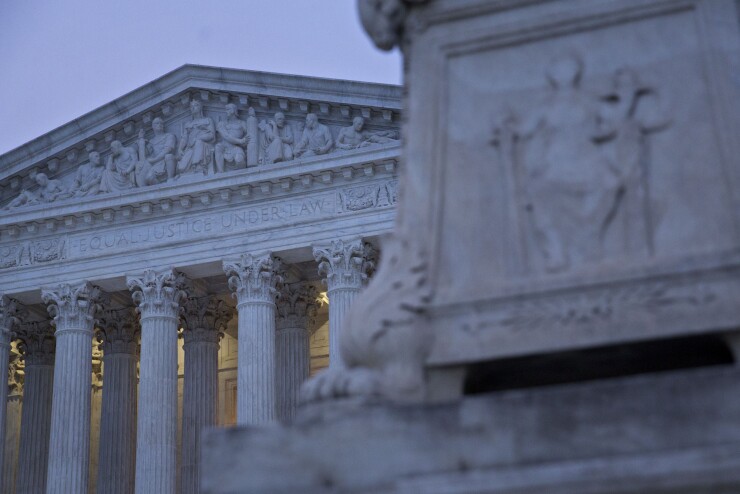The Supreme Court opened a new avenue for fighting off complaints by the Securities and Exchange Commission and Federal Trade Commission in a decision that could reduce the leverage of two of the most powerful federal regulators.
The justices unanimously
The ruling, written by liberal Justice Elena Kagan, didn't go as far as two conservative justices wanted. But it's the latest in a line of rulings that have chipped away at the federal administrative state, reducing agencies' powers, putting them more firmly under presidential control and now making them more vulnerable to sweeping constitutional attacks.

The challengers — accountant Michelle Cochran in the SEC case and body-camera manufacturer Axon Enterprise Inc. in the FTC case — say the job protections afforded to ALJs violate the Constitution's separation of powers by insulating the judges from presidential control.
The Biden administration contended that Cochran and Axon could make those arguments only after they went through commission proceedings and challenged the final decisions in a federal appeals court. Cochran and Axon said they shouldn't have to endure an expensive process that could take years.
"Cochran and Axon will lose their rights not to undergo the complained-of agency proceedings if they cannot assert those rights until the proceedings are over," Kagan wrote for the court.
Thomas and Gorsuch
Kagan relied on a 1994 decision that said federal trial courts can hear immediate challenges in some circumstances. That ruling said federal judges have jurisdiction when a disputed legal issue might not otherwise get "meaningful judicial review," lies outside the agency's expertise and is "wholly collateral" to the in-house review system.
Kagan also pointed to a 2010 Supreme Court ruling that invalidated similar protections for members of the Public Company Accounting Oversight Board.
Justices Clarence Thomas and Neil Gorsuch said they would have issued a more sweeping ruling. Thomas said he had "grave doubts about the constitutional propriety of Congress vesting administrative agencies with primary authority to adjudicate core private rights with only deferential judicial review on the back end."
Gorsuch said he would have discarded the 1994 precedent. He pointed to the broad power Congress has given federal courts to hear "all civil actions arising under the Constitution, laws, or treaties of the United States."
The FTC declined to comment on the ruling. An SEC spokesperson said the commission is reviewing the opinion.
Cochran has been battling the SEC since 2016, when the commission first accused her of engaging in improper professional conduct.
"We are thrilled that the Supreme Court has unanimously vindicated Michelle Cochran's right to have her day in court to challenge the constitutionality of the administrative apparatus she has fought for nearly a decade against the SEC," said her lawyer, Gregory Garre of Latham & Watkins.
Axon is fighting the FTC's effort to unwind the company's acquisition of a rival.
The cases are Axon v. Federal Trade Commission,
— With assistance from Leah Nylen and Lydia Beyoud





